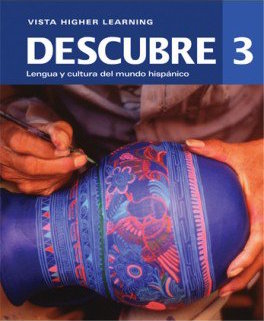
All Solutions
Page 264: Practica
**Hint**: *augmentatives are used are used when we want to magnify something, either an object or a quality. while diminutives want to make them smaller.*
*why don’t teachers like it when the students say swear words?*
To denote displeasure at a high level, we turn this word into an **aumentative** beign **palabrotas** the right aumentative.
*My girlfriend’s puppy is very cute and friendly.*
Here we are talking about a puppy, so we are gonna use the **diminutive** **perrito**.
*That lawyer has a good nose for guessing his clients’ problems.*
In this case we praise with a metaphor a quality of the lawyer, so the **aumentative** **narizota** is correct.
*My grandparents live in a very old house.*
We keep magnifying a quality, we use the **aumentative** of *”casa grande”* wich is **casota**.
*Singer Samantha always wears a little flower in her hair.*
When we are describing a small object we use **diminutives**, so **florecita** is valid.
*My little sister is fascinated by science fiction books.*
In this case we are talking about someone younger than us, **hermanita** is the correct **diminutive.**
***Hint:*** **augmentatives** are used are used when we want to magnify something, either an object or a quality. while **diminutives** want to make them smaller.
|Español |English |
|–|–|
|Muy grande. |Very large.
|
|Agujero pequeño. | Small hole. |
|Cuarto grande y amplio. | Large and spacious room.|
| Sillas para niños. |Chairs for children. |
|Libro grande y grueso. |Large thick book. |
|Estrella pequeña. |Small star. |
|Hombre alto y fuerte. |Tall and strong man. |
| Muy cerca. |Very close. |
| Abuelo querido. |Dear grandfather. |
|Hombres que piensan que siempre tienen la razón. | Men who think they are always right.|
|Word/Sentence |augmentatives/diminutives |
|–|–|
|Muy grande. |grandote |
|Agujero pequeño. |agujerito |
|Cuarto grande y amplio. |cuartote |
|Sillas para niños. |sillita |
|Libro grande y grueso. | librote|
|Estrella pequeña. |estrellita |
|Hombre alto y fuerte. |hombrezote |
|Muy cerca. | cerquita|
| Abuelo querido.| abuelito|
|Hombres que piensan que siempre tienen la razón. | hombrecito|

